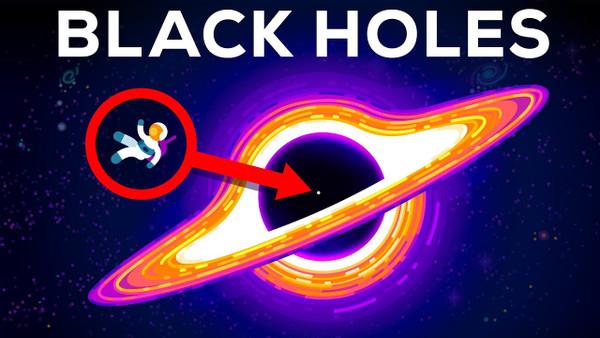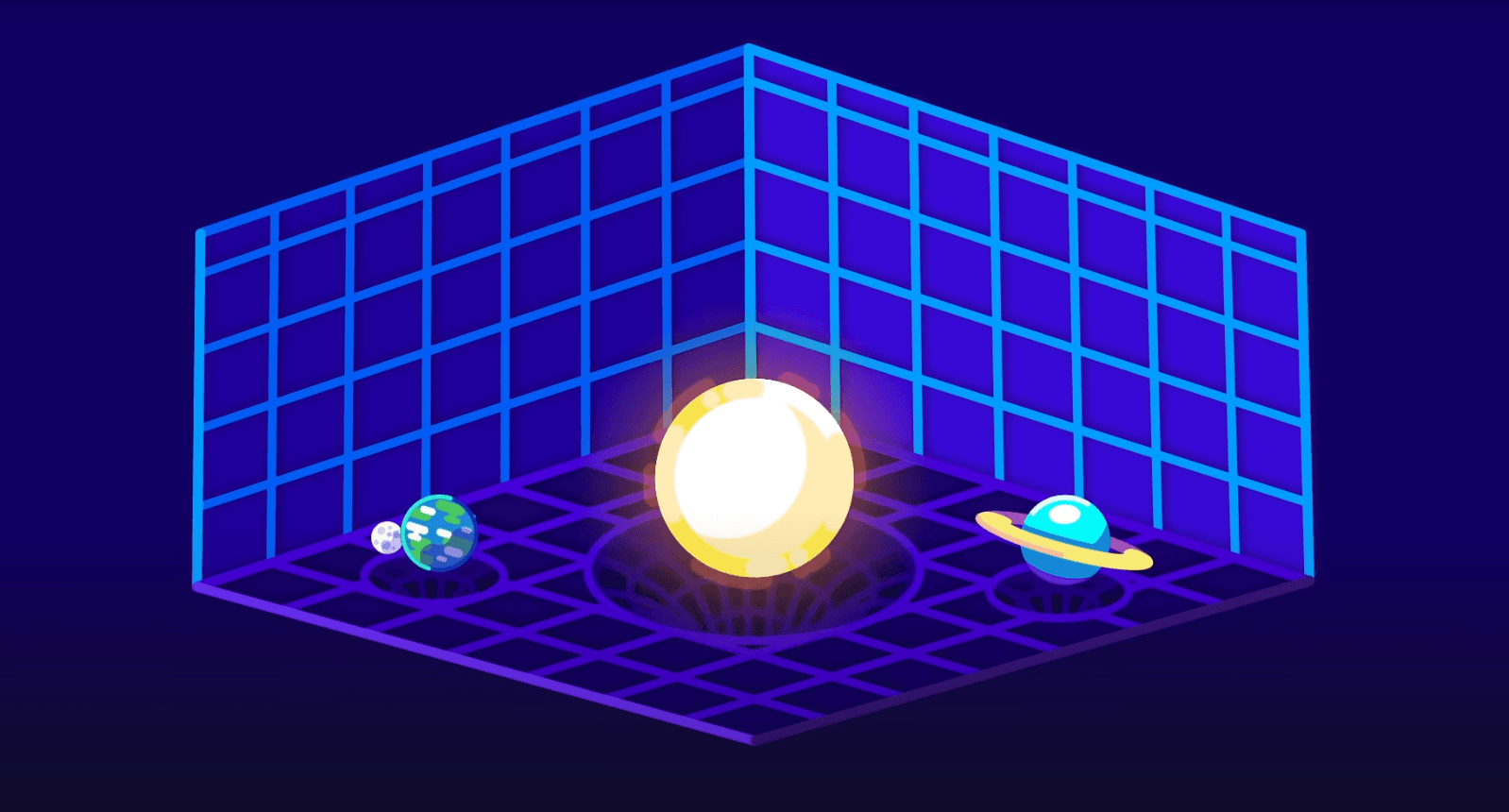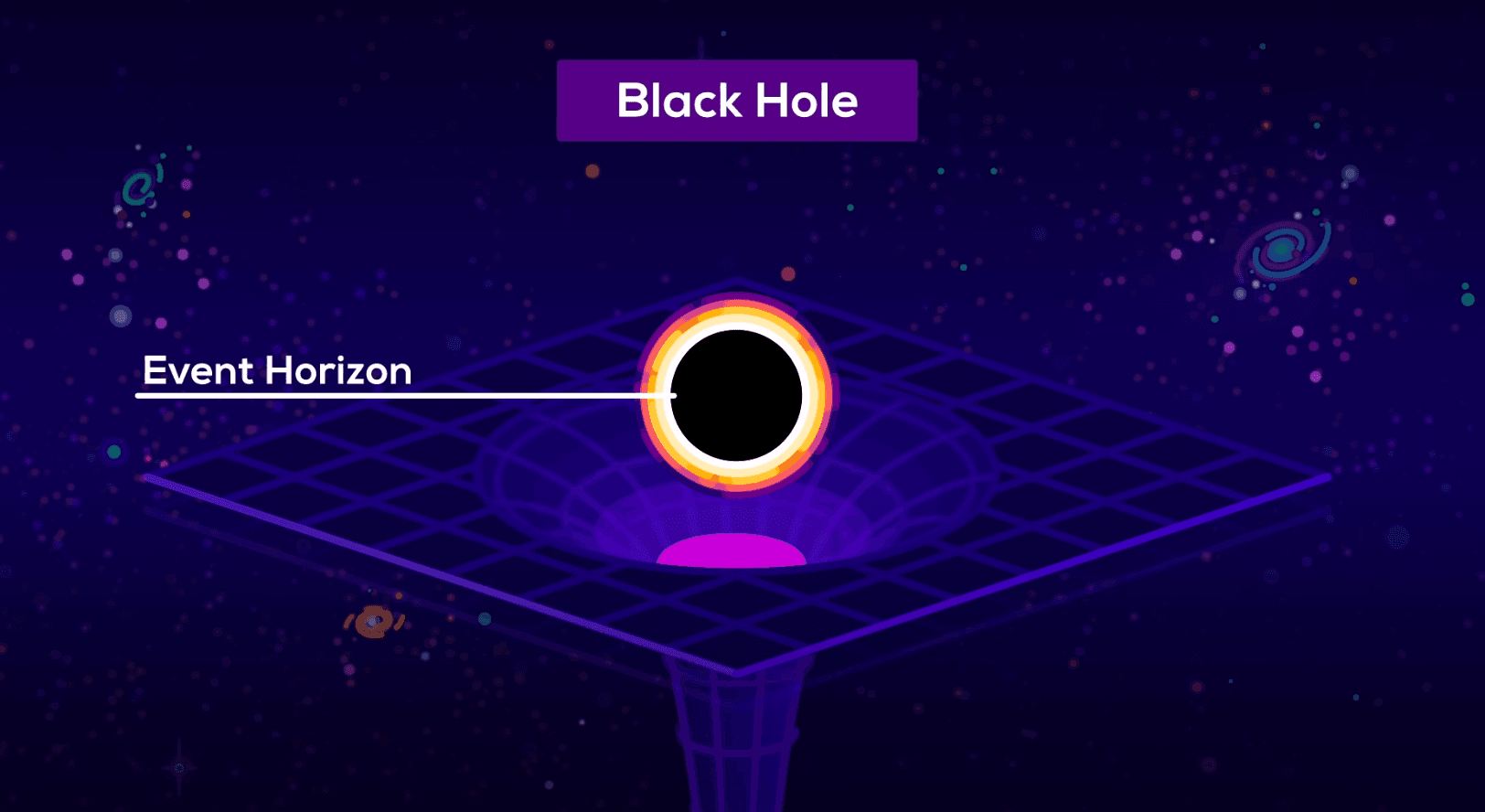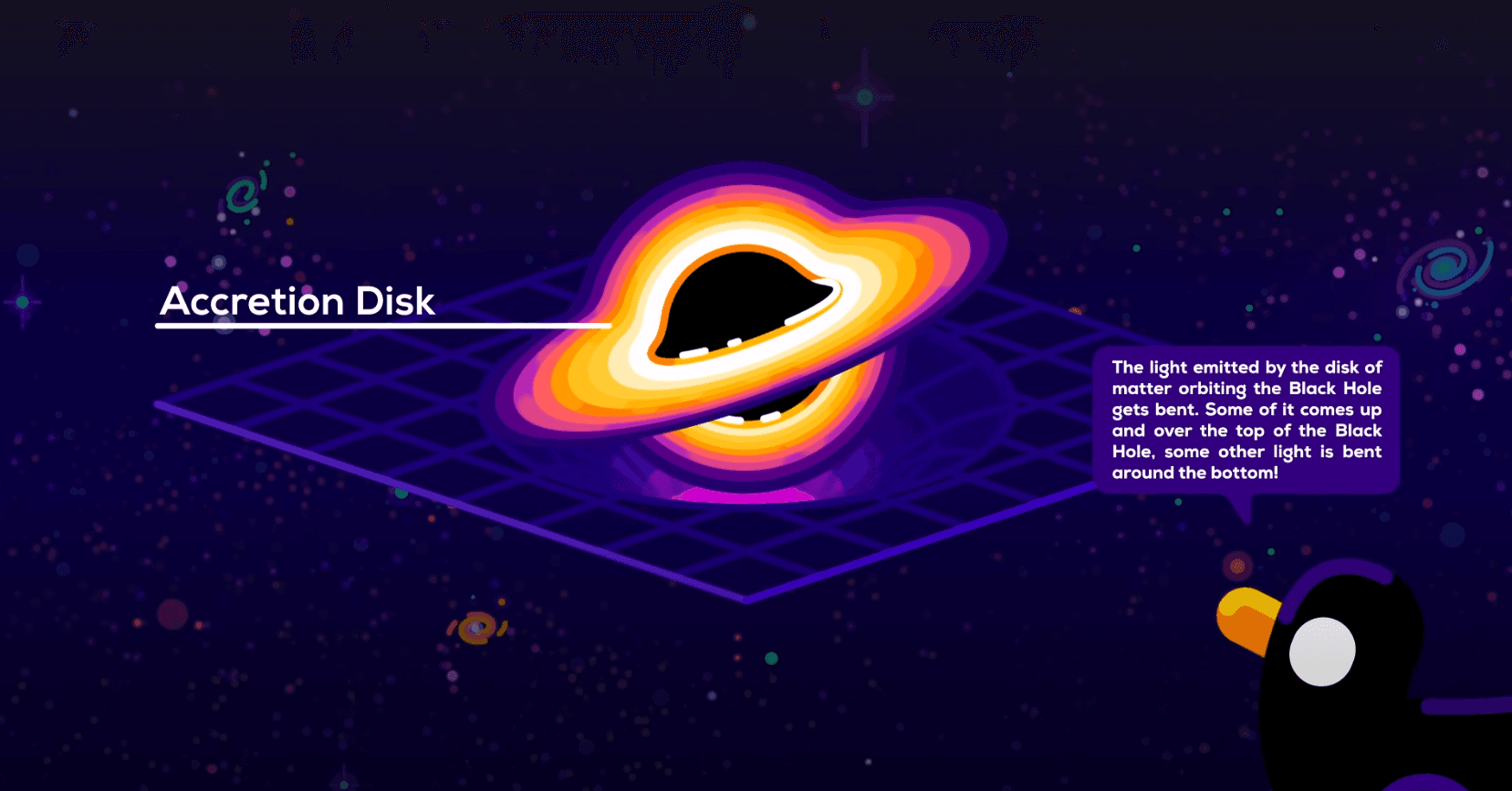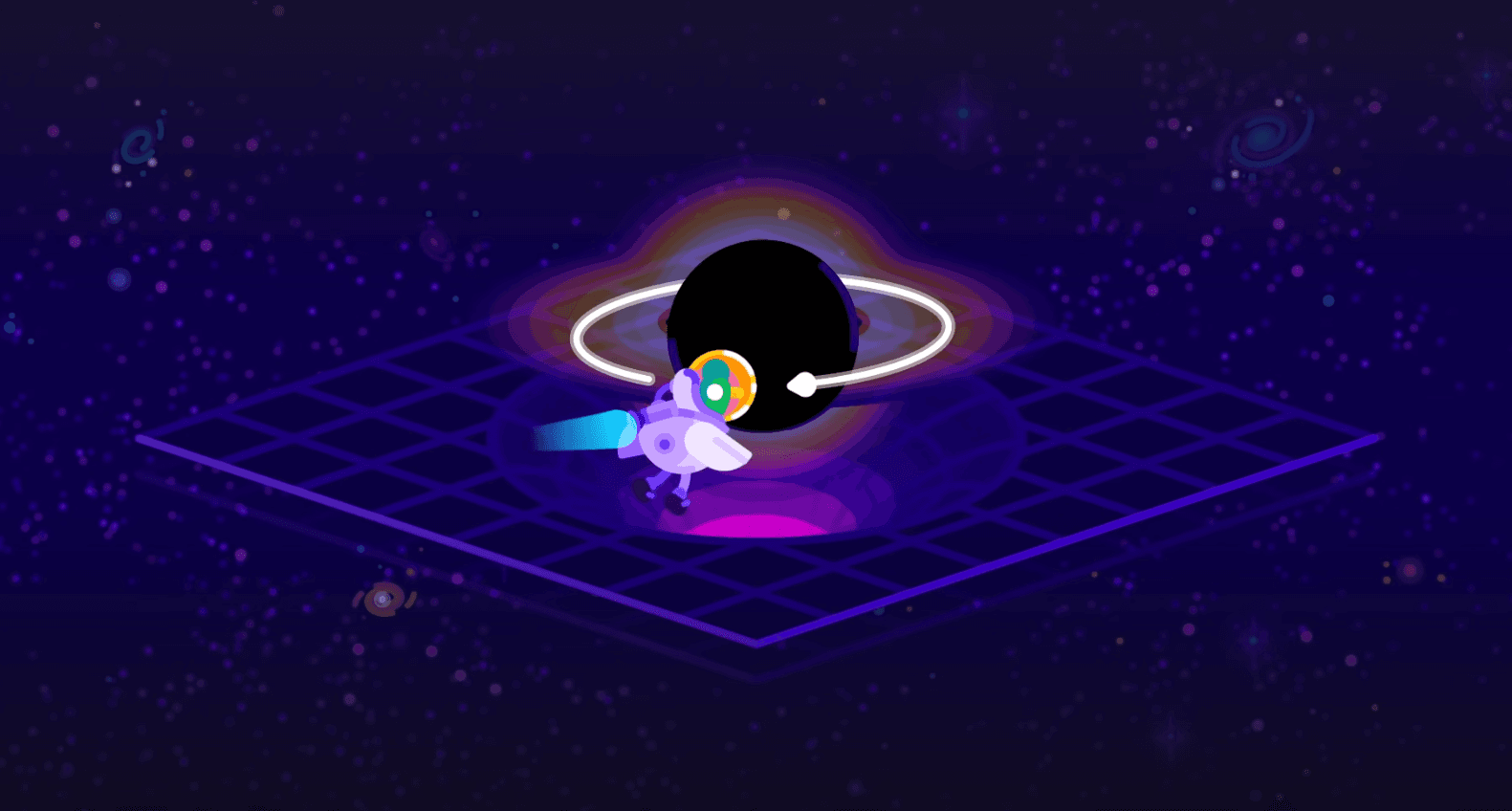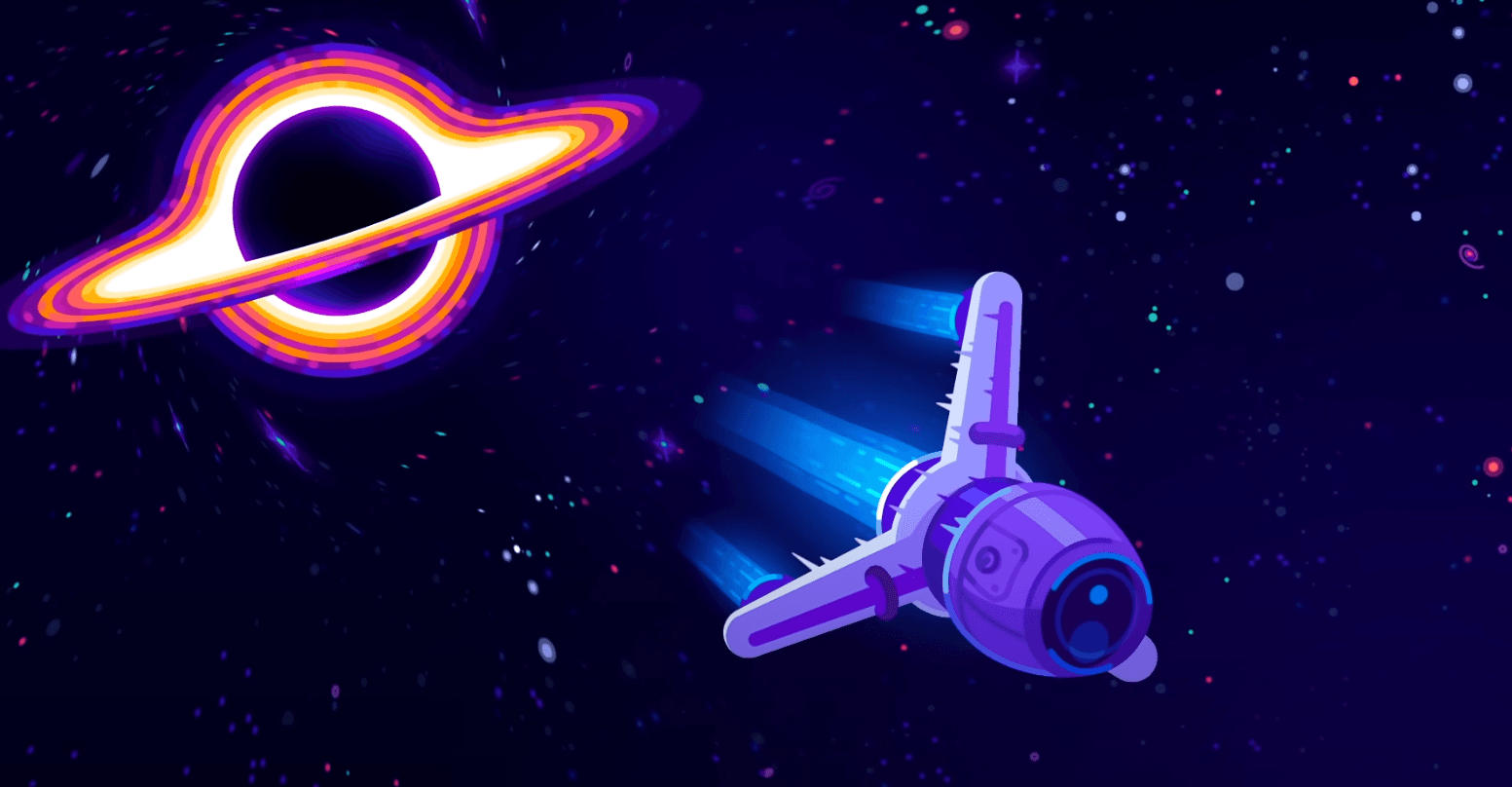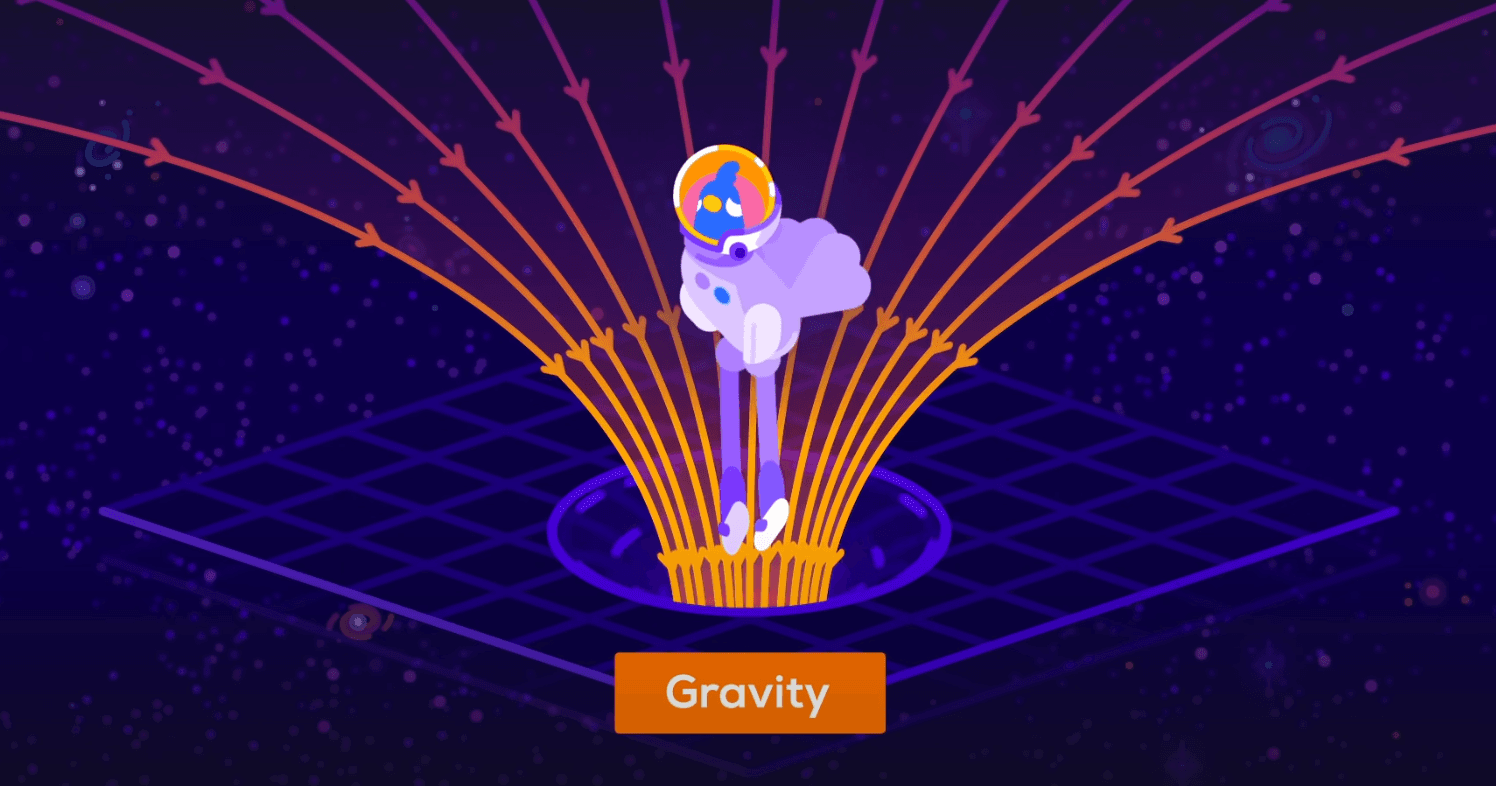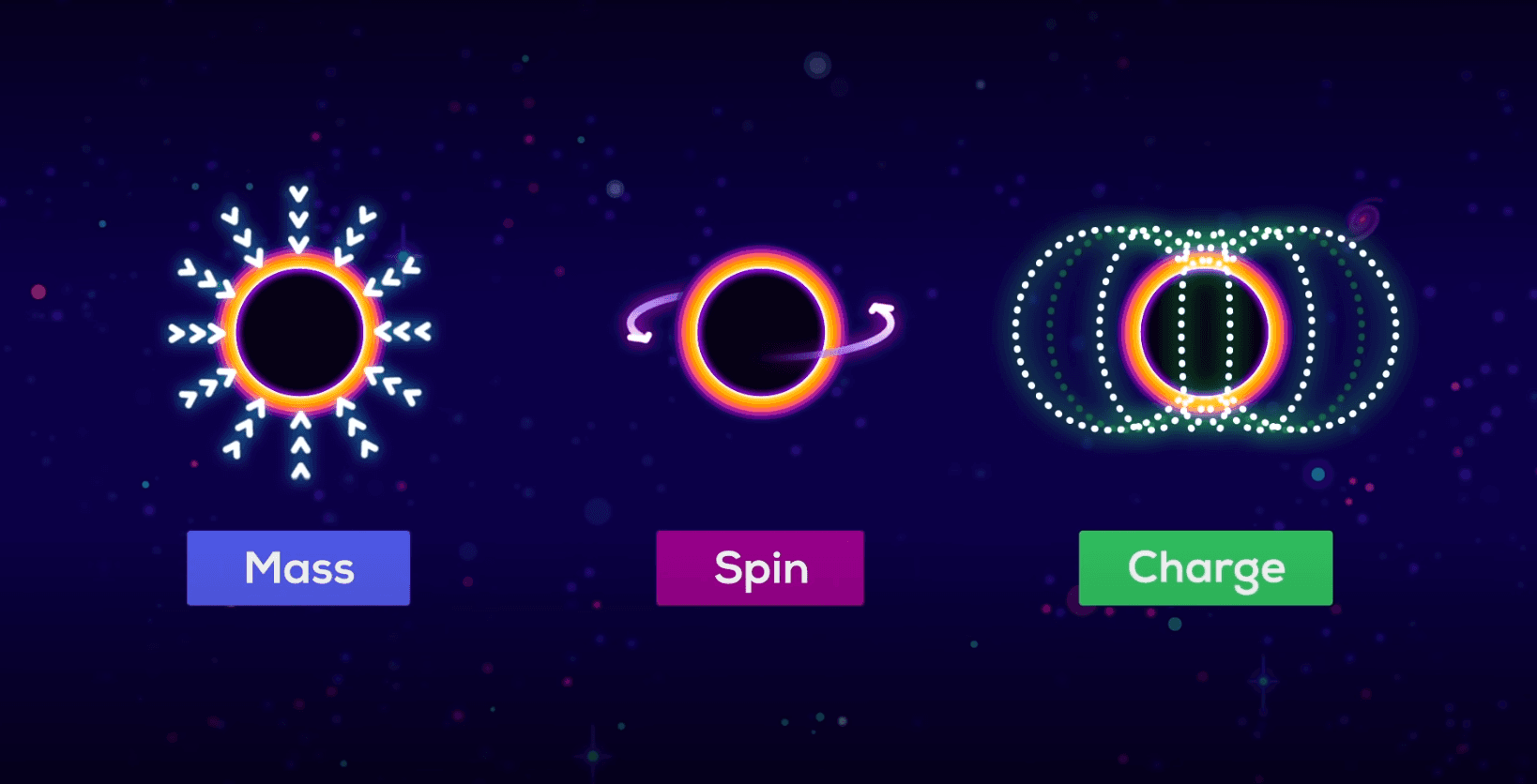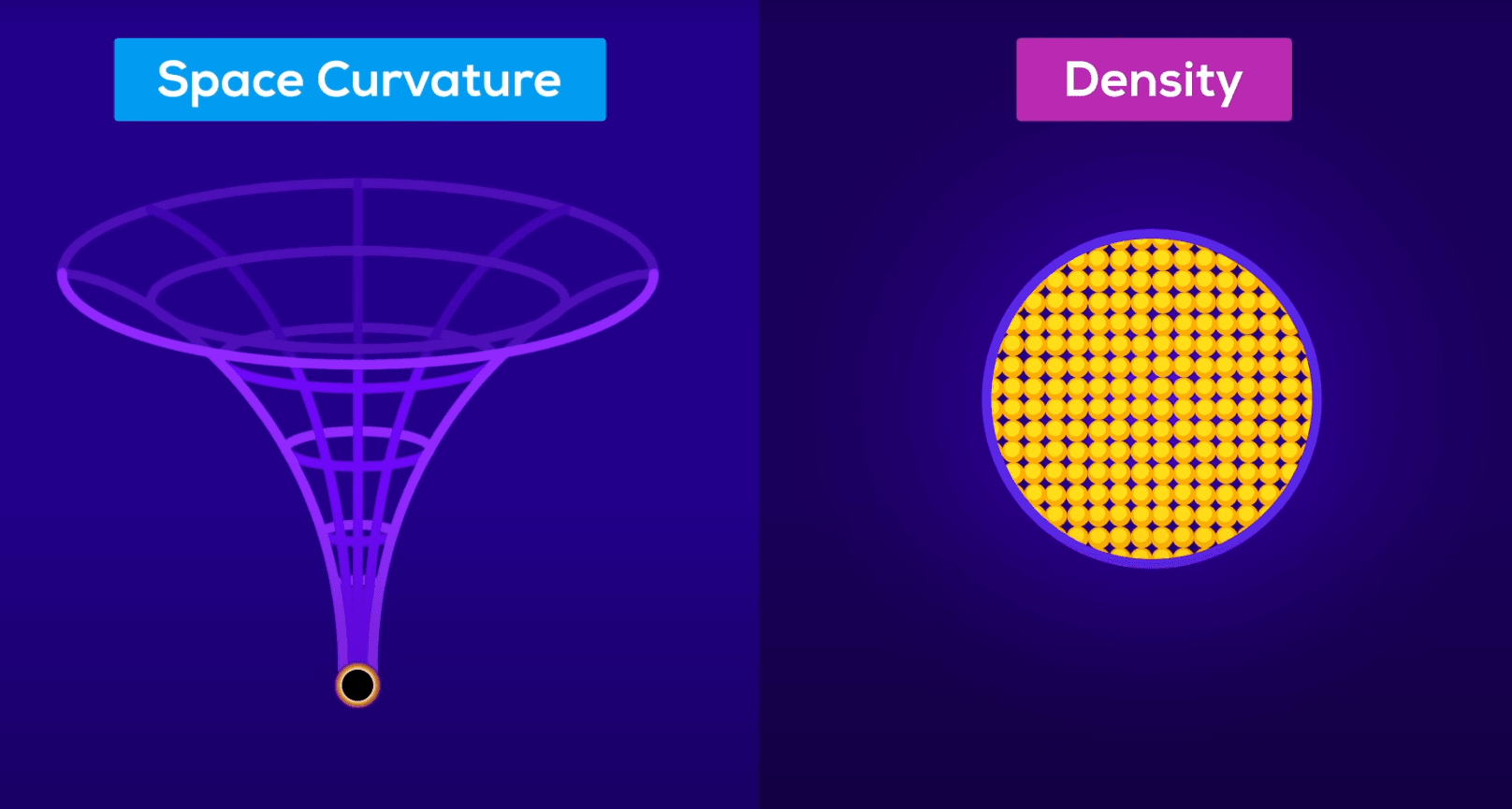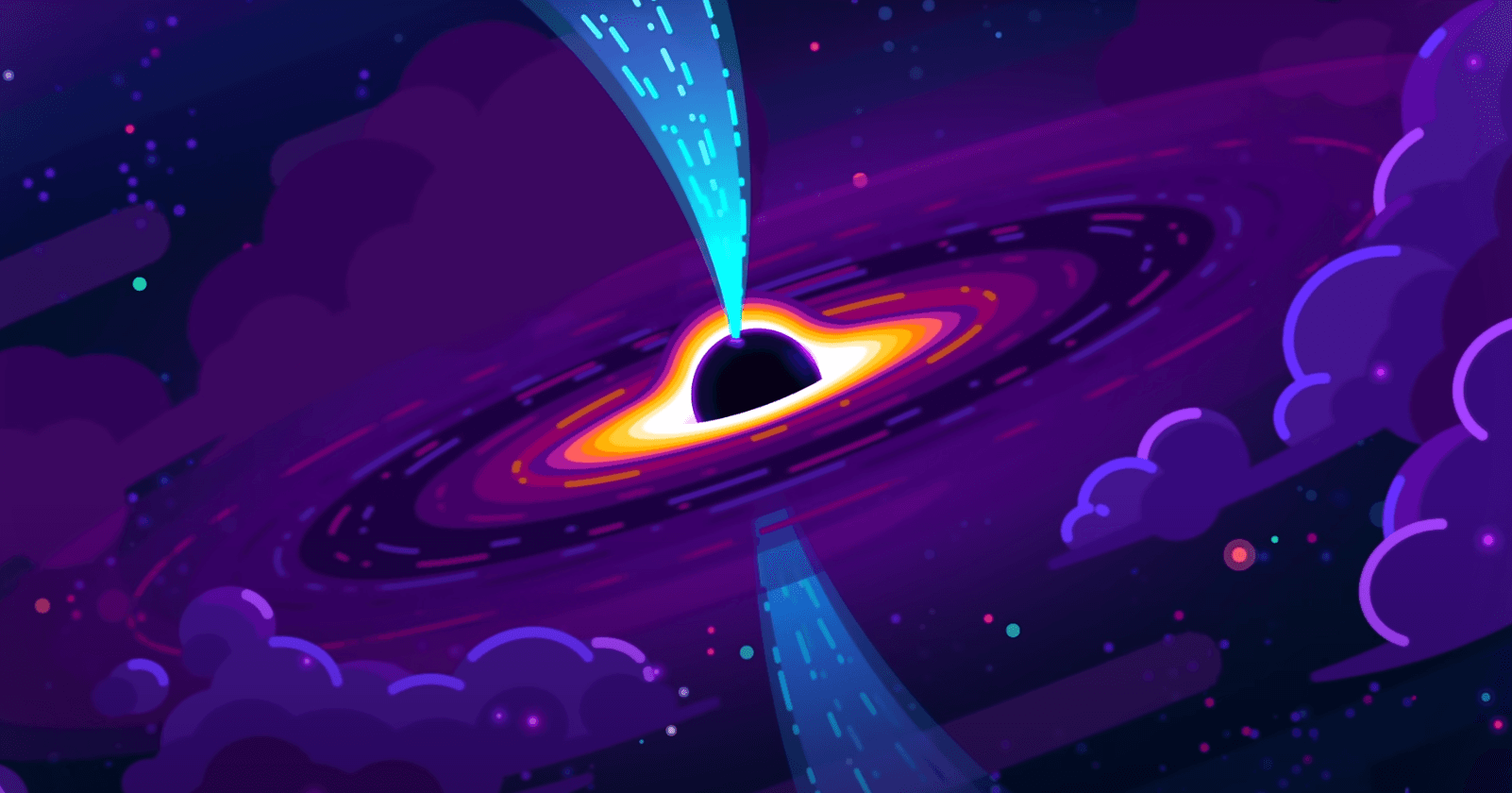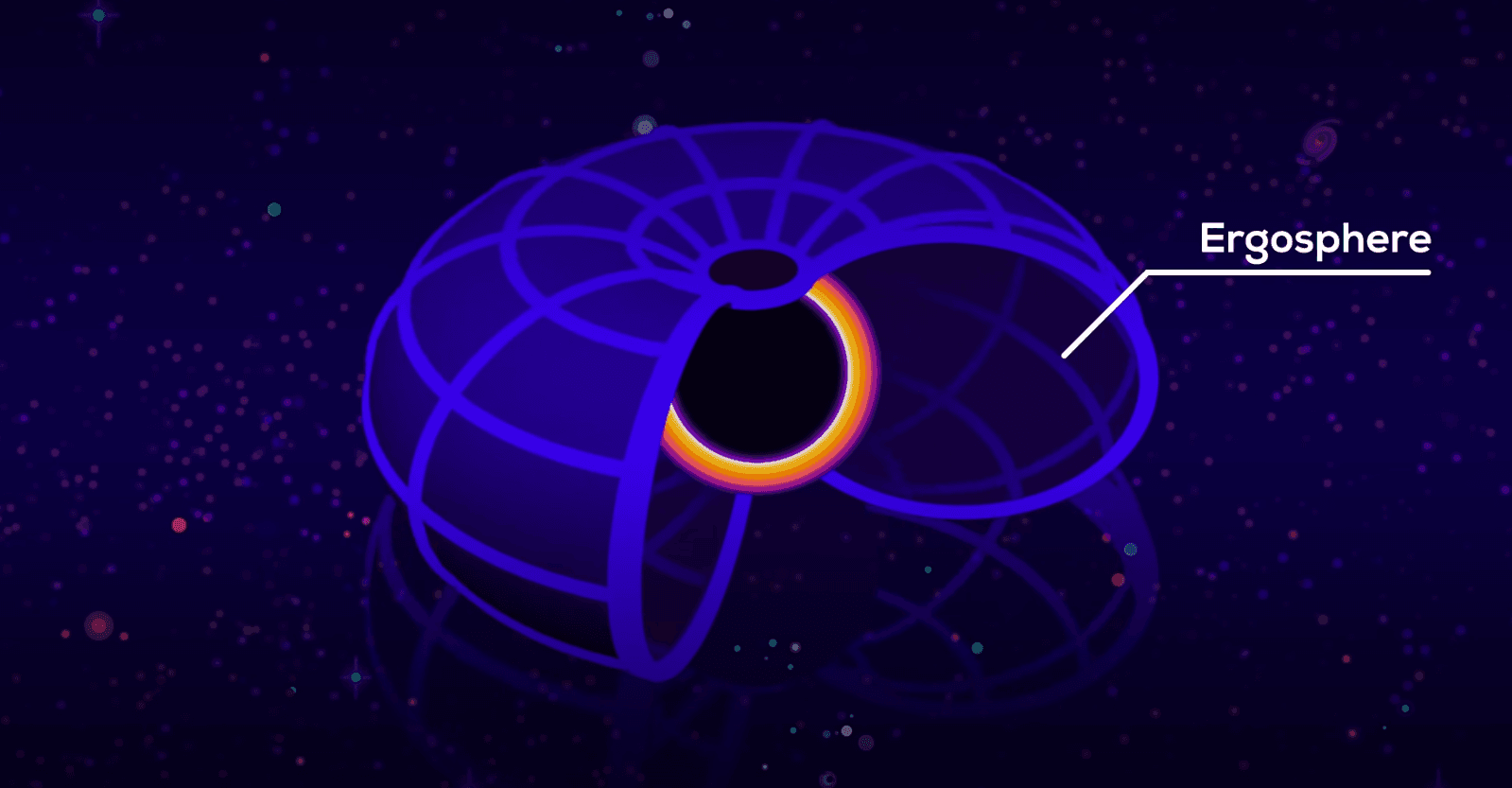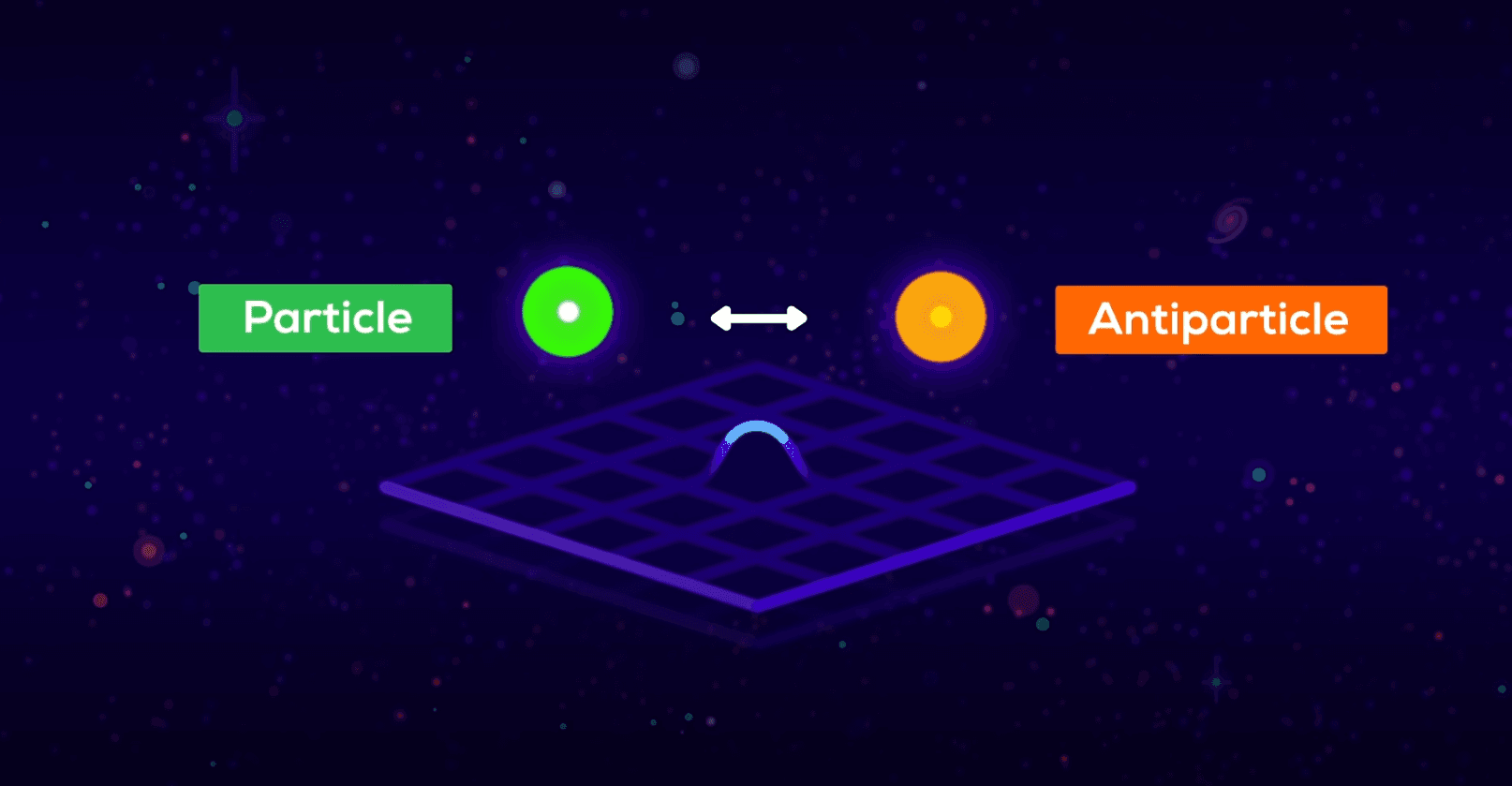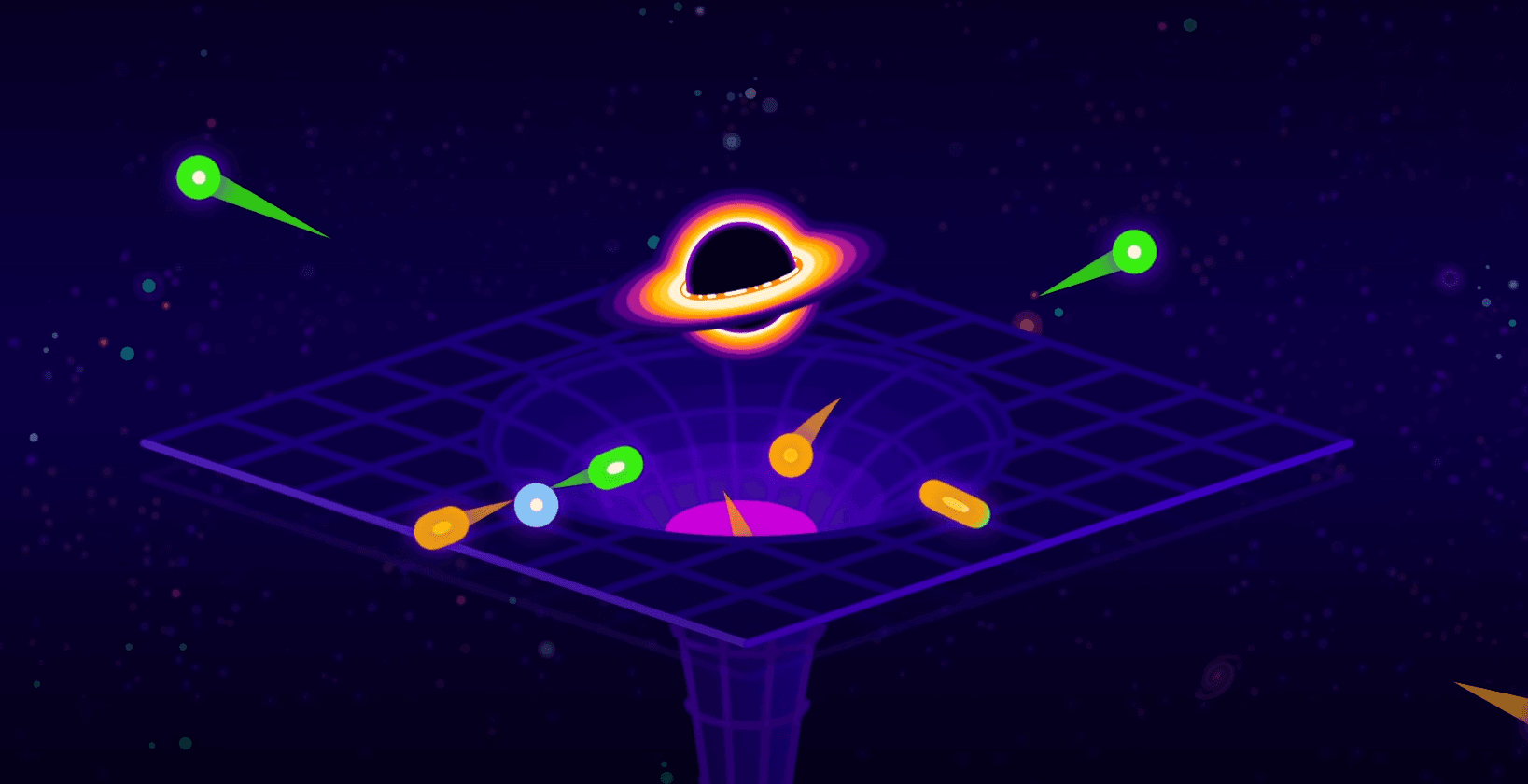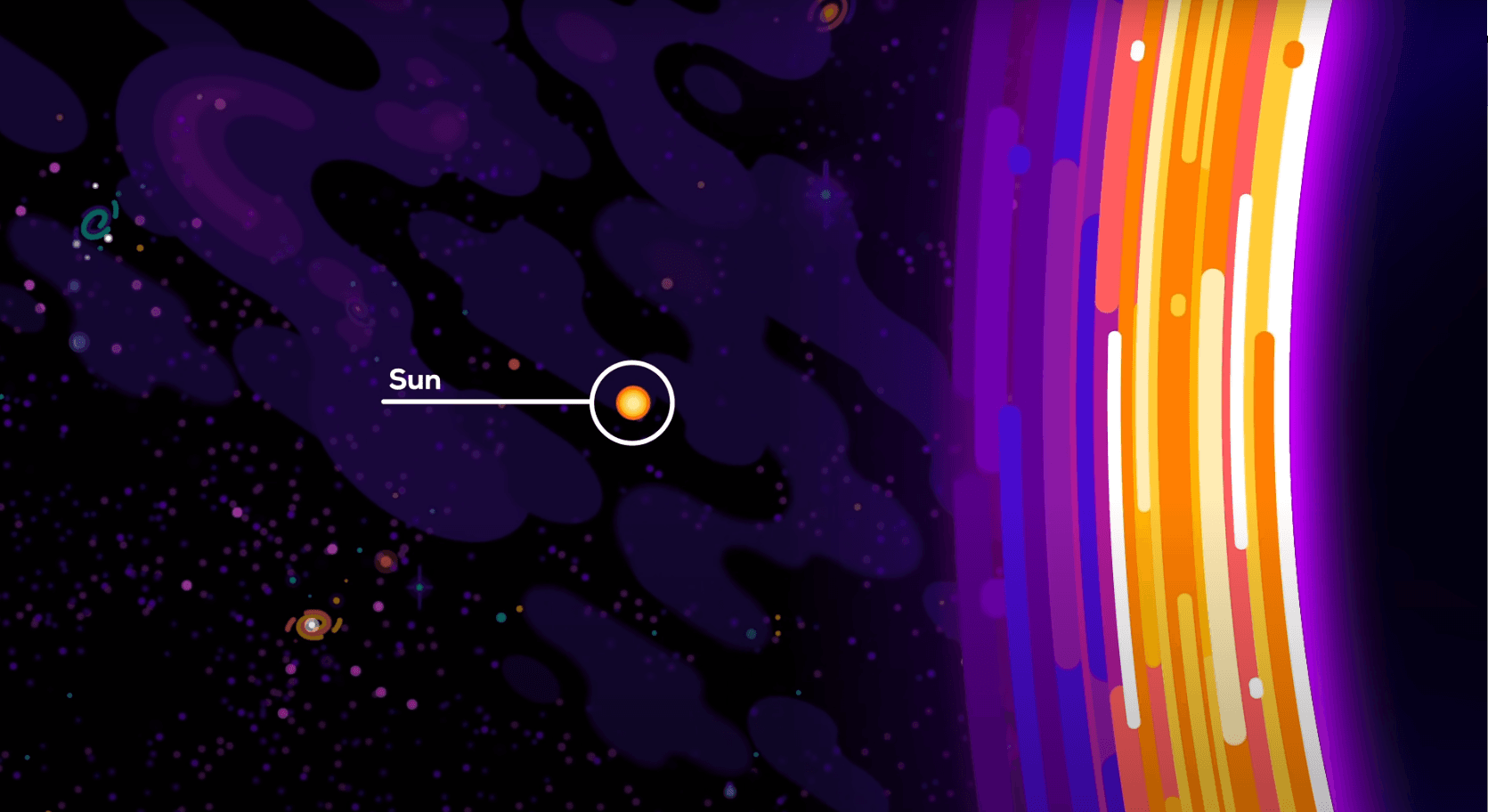The Ultimate Guide to Black Holes
Curated from: Kurzgesagt – In a Nutshell
Ideas, facts & insights covering these topics:
17 ideas
·21K reads
135
4
Explore the World's Best Ideas
Join today and uncover 100+ curated journeys from 50+ topics. Unlock access to our mobile app with extensive features.
Space and time
Space and time are the grand stage where the play of the universe unfolds. But space isn't a fixed stage and doesn't tick the same for everyone everywhere. In short, they are relative. Matter bends space and bent space tells matter how to move.
- Put some stars and plantes on the stage, and it sags underneath them.
- That misshapen stage, with all its little warps and dips, gives us gravity.
303
3.15K reads
Black hole
Black holes do not just bend the stage, they are like trap doors. Places with so much mass that the universe formed a 'no-go' zone where the rules change.
- Most black holes form when very massive stars die. In the final moments of really massive stars, there insides implode, at nearly a quarter of the speed of light.
- This pack so much mass, so close together that it creates something so dense that it sort of breaks the stage of the universe forming a black hole.
290
2.04K reads
Event horizon
If you look directly at a black hole it looks like nothing. the space is under their control is blocked by an invisible one way border called the event horizon.
The event horizon forms a sheel around a region of space that, once entered, is shielded from the rest of the universe forever.
- Because the black hole trap door derforms space so much, no even light can escape it. and with nothing escaping to transfer infromation from the inside, it's impossible to tell what it really looks like.
283
1.69K reads
Acceretion disk
We can still observe black holes because of ther effect on matter. Things can orbit black holes just as they can orbit the sun or a planet.
- Many black holes have discs of matter orbiting outside the event horizon.
- This matter can become incredibly hot as close orbits can speed this matter up to half the speed of light, and tiny amounts of friction and colisions between particles heat them to a billion degrees, making the space around these black holes, ironcally, incredibly bright.
286
1.41K reads
What would happen if you would try to get close to a black hole?
First of all, you would see the strangest funhouse mirror in the universe. Matter isn't the only thing orbiting a black hole: Gravity is so strong near them that light can orbit too.
- If you hovered just outside the event horizon, at the photon sphere, in any direction you'd just see yourself!
- Straight ahead would be the back of your own head, as light travels around the black hole to your eyes.
293
1.37K reads
Gravity alters time
Gravity also alters the passage of time itself. The stronger the gravity the slower time passes. While you watch the universe above you speed up, those far away will watch you in slow motion.
- If you chose to fly away from the black hole, you might find that eons have passed for the rest of the universe, a freakish one-way time-travel trip to the future where your loved ones are long dead.
288
1.27K reads
Spaghettification
But getting close to a black hole can be incredibly dangerous. A painful death by 'spaghettification' awaits you.
Because you feet are closer to the black hole than your head they feel a stronger pull of gravity, enough to pull you apart.
- As you descend it gets worse, the pulling gets stronger, your body queezed thinner and straighter until you've been reduced to a thin stream of hot plasma, gobbled up in one final slurp never to be seen again.
Spaghettification is only a risk with smaller black holes, since they have much smaller radii.
278
1.12K reads
Inside a big black hole
If you got to the center of a galaxy and find a massive black hole, you might be able to experience crossing the event horizon.
- As you approach the event horizon, a distant observer would think they never saw you enter it, seeing you stop and fade.
- The last light you emit trickling up and out, away from the event horizon. Meanwhile, from your perspective the void of the black hole rises up to meet you, as light from fewer directions can reach you.
The blackness envelops you until your view of the universe you left is a tiny spot of light.
278
1.05K reads
Singularity
In the center of the black hole, we find the singularity. A single point with all the matter that has ever crossed the event horizon, all crushed to a point infinitely small.
- There is no memory of the things that made it as stuff disapears down the black hole trapdoor forever.
280
1.05K reads
Three properties
This lack of memory of its past, means that a black hole has only three properties its:
- Mass
- Spin
- Electric charge
Everything else is lost. They're a lot like fundamental particles in that respect. This actually means that every single black hole in the universe is the same.
- Sure, their mass is different and some spin faster than others. But if we were to put all the singularites into a magical pysics museum, they would be identical, like electrons.
280
1.01K reads
Just like fundamental particles, the properties of singularrities are the best ways we can describe them on paper, rather than an accurate representation of reality.
Our current theories about the universe, namely general relativity are just not able to descrive or explain them.
- The curvature of space becomes infinite, density becomes infinite, and our rules just don't make sense, the sinularity has no surface or size, something like a divede-by-zero error in the universe.
So singularities might not even exist or be completely different things. But this is all we know right know.
279
899 reads
Theoretical black holes
Also, basically everything you've ever read about black holes, is about theoretical black holes that aren't spinning, because their math is so much easier.
- But since black holes are born from dying stars that were spinning extremely quickly in their final moments, as far as we know all black holes should be spinning right now.
- At increlible speeds too, up to 90% the speed of light. This means that in reality, black holes are even more screwed up than we usually get credit for.
281
926 reads
Ergosphere
The singularities of rotating black holes are even wilder. The rotation causes them to swell outwards into a sort of rinularity.
This rotation is so powerfull, that space itself is dragged along.
- This creates another region around spinning black holes, called the ergosphere. Where its impossible to stay still, no matter how hard you try.
- Like a rushing whirlpool of spacetime, the tide is irresitible and black hole makes you orbit it whether you want it or not.
278
867 reads
so what will happen with black holes as the universe ages and dies around them?
So what will happen with black holes as the universe ages and dies around them?
- Again, we don't know but we have some ideas based on our current understanding of physics: Hawking radiation.
- In quantum field theory the vacuum of space is boiling with quantum fluctuations.
These flucutuations are creating matter and antimatter pairs of paricles from nothing wich only exist for a very short time before annihilating.
279
875 reads
Hawking radiation
When this happens near the event horizon of a black hole, one of these particles call fall in, stopping them from annihilating.
- The escaping particle is hawking radiation. ultimately the mass of this particle must come from the black hole, so over eons black holes will shrink and radiate away.
Hawking radiation is not the stuff that fell into the black hole, it's new stuff stealing the mass from it.
- As the black hole shrinks the hawking radiation gets stronger, faster and faster, until whats left eventually evaporates in a flash of high enery radiation like nuclear bomb. And then, nothing.
278
755 reads
time for a black hole to dissapear
A black hole the mass of our sun has a lifetime of 10^67 years. Which means that it would take:
- 10,000 billion, billion, billion, billion, billion, billion years, to lose 0.0000001% of its mass.
- But most black holes are way more massive than our sun. The most massive supermassive black holes in the centers of the galaxies have lifetimes of 10^100 years. How long is that?
Imagine an hourglass filled with one grain of sand for every single particle in the universe. Every ten billion years one single grain of sand falls to the bottom.
- There is no good concept to help our brains grasp these times
283
756 reads
Will we ever truly understand black holes? Really know whats going on inside them?
No one knows. We can only see their outsides, and the theories we have probably get their insides wrong.
But it's okay not to now everything. It just means there is still work to be done. It means there are still mysteries to be solved and big dead to think about, which is why humans do science.
In the end we atleast can be sure that we still have plenty of time left to think about them before the last one melts away
277
743 reads
IDEAS CURATED BY
I'm passionate about helping people live their best lives. I'm a lifestyle coach & burnout coach.
Rogier. H's ideas are part of this journey:
Learn more about technologyandthefuture with this collection
How to communicate effectively with difficult people
How to handle conflict
How to stay calm under pressure
Related collections
Similar ideas
2 ideas
An Antidote to Dissatisfaction
Kurzgesagt – In a Nutshell
7 ideas
An Antidote to Dissatisfaction
Kurzgesagt – In a Nutshell
7 ideas
Loneliness
Kurzgesagt – In a Nutshell
Read & Learn
20x Faster
without
deepstash
with
deepstash
with
deepstash
Personalized microlearning
—
100+ Learning Journeys
—
Access to 200,000+ ideas
—
Access to the mobile app
—
Unlimited idea saving
—
—
Unlimited history
—
—
Unlimited listening to ideas
—
—
Downloading & offline access
—
—
Supercharge your mind with one idea per day
Enter your email and spend 1 minute every day to learn something new.
I agree to receive email updates
